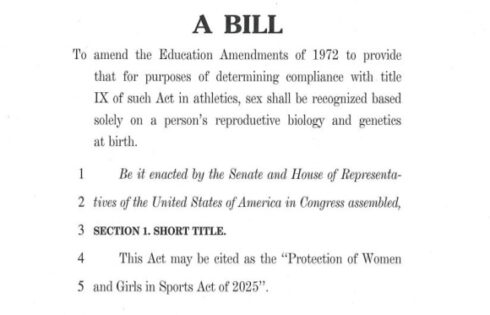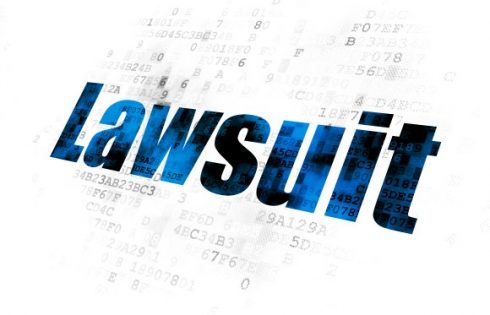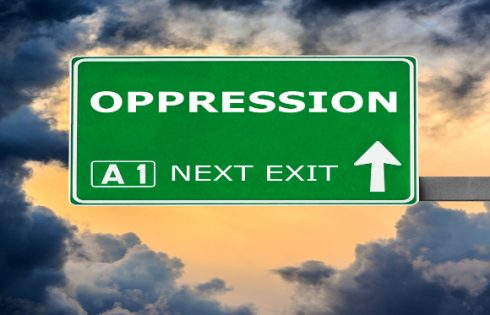
Universities are increasingly relying on “diversity statements” for faculty hiring and promotion, according to a new report from the Oregon Association of Scholars.
These statements have strong ties to liberal ideology, such as the assumption of group victimization and claims for group-based entitlements, effectively making them “partisan litmus tests” to “weed out non-left wing scholars,” the association states in its report.
The association notes that many schools now link to articles explaining how to craft a diversity statement, which include affirmations that a professor will “keep the white students from dominating all classroom discussions,” or “reflect a commitment to queer visibility,” or teach students “not to thoughtlessly reproduce the standard white and Western model of legitimate knowledge.”
A focus on “racial oppression, sexism, homophobia, transphobia, ableism and other commonly recognized forms of oppression” has also been outlined as good fodder for diversity statements, according to a column in Inside Higher Ed.
More than 20 colleges have a stated requirement that faculty must show their commitment to the ideals of “diversity, equity, and inclusion,” reports the Oregon Association of Scholars. The actual figure is likely much higher, however. A quick google search of a school’s name and “diversity statement” reveals that many institutions require such statements for entrance into PhD programs or application for faculty positions.
The University of Oregon introduced one such requirement in 2015 that a faculty member’s teaching must “reflect the diversity of the field, including the racial, ethnic, and gender diversity of its scholars and practitioners.” Also, the university states a commitment to “incorporating issues of equity, implicit bias, and cultural understanding in new faculty searches.”
Similarly, the 10-campus University of California system implemented mandatory diversity statement for all new hires, and the specific criteria used to evaluate a candidate’s commitment to diversity includes whether a scholar’s research addresses “race, gender, economic justice or inequality,” according to the Oregon Association of Scholars’ report.
Portland State University’s Diversity Action Council distributes a list of 44 questions for measuring “cultural competencies” during the interview process. At Carnegie Mellon University, on the other hand, candidates can pass litmus tests like these if they are “a member of a historically underrepresented group in their field.”
Oregon Health & Science University takes their commitment to diversity one step further, according to the report, as they track and report individual faculty participation in diversity events.
The report specifically cites the University of Oregon, the University of California system, the Oregon Health & Science University, Oregon State University, and Portland State University.
“Today the mandatory ‘diversity statement’ threatens to become a ‘fifth document’ in faculty hiring and promotion at many universities (in addition to cover letter, curriculum vitae, research statement, and teaching statement),” states the Oregon Association of Scholars, which is affiliated with the right-of-center National Association of Scholars.
This trend is problematic for academic freedom and research excellence as faculty will “spend more time signaling their zealous support and making sure not to challenge students in ways that might be construed as a threat to this ideology,” the group adds in their March 2017 report.
George Leef, director of research for the James G. Martin Center for Academic Renewal, agrees with the association that diversity statements are problematic.
“The ideological fervor for conformity abated for decades, but has recently returned on our college campuses in the form of mandatory ‘diversity statements’ by faculty members and especially prospective faculty members. The difference is that instead of having to pledge adherence to America in its battle with communism, the new pledge is adherence to the ‘diversity’ agenda in its battle against a color-blind, merit-driven academia,” Leef recently pointed out on the center’s website.
Leef stated he believes that diversity statements may be found invalid on First Amendment grounds, if challenged.
“These mandatory diversity statements, which operate as methods for prescribing orthodoxy among college faculty members, might be vulnerable to a First Amendment challenge,” he writes. “Rather than waiting for a legal challenge, though, this nasty phenomenon could be stopped quickly by legislation.”
School leaders disagree, however.
UC San Diego Communications director Judy Piercey wrote in an email to The College Fix that “the purpose of the statement is to identify candidates who have professional skills, experience, and/or willingness to engage in activities that would enhance campus diversity and equity efforts.”
Similarly, University of Cincinnati spokesperson M.B. Reilly said in an email to The Fix last year that “asking for diversity and inclusion statements in our application processes signals that we are global, we are national and we want to become more so in drawing students, staff and faculty that reflect today’s world.”
Oregon State University, the University of Oregon, Carnegie Mellon University, the Portland State University, and the Oregon University of Health and Sciences did not respond to requests from The College Fix seeking comment.
The Oregon Association of Scholars also did not respond to requests for comment.
MORE: Faculty forced to pledge allegiance to diversity or lose their jobs nationwide
Like The College Fix on Facebook / Follow us on Twitter
IMAGE: Shutterstock





Please join the conversation about our stories on Facebook, Twitter, Instagram, Reddit, MeWe, Rumble, Gab, Minds and Gettr.